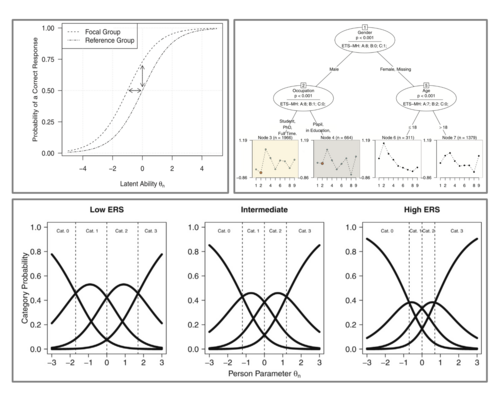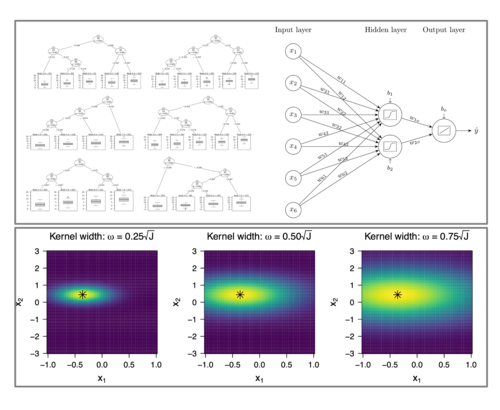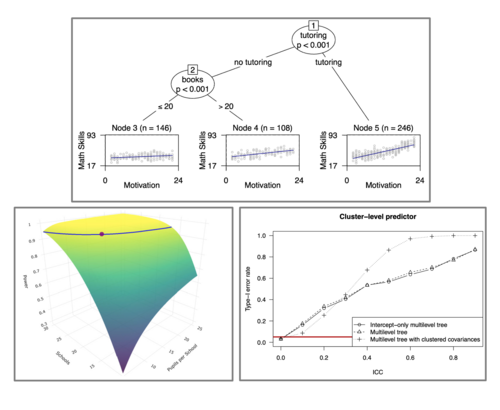Statistics and Data Science
We conduct research in three areas and their intersection: psychometric modeling, machine learning methods, and multilevel and longitudinal modeling. On the one hand, we assess existing tools, test their applicability, and demonstrate opportunities and pitfalls for analyses in psychological research. On the other hand, we develop new tools and extend existing tools to offer new possibilities for data analysis and hypothesis generation. As our main methodological approach, we use simulation studies conducted in the open-source software R and illustrations of the new methods using empirical data from psychology.
New SNSF Project
SNSF DATABASEStarting in February 2025, we will investigate and extend machine learning models so that they can also be applied to hierarchically structured and longitudinal data in psychology. This allows empirical researchers in psychology to investigate nonlinear dynamics of psychological processes in an exploratory manner when their data is hierarchically structured.



